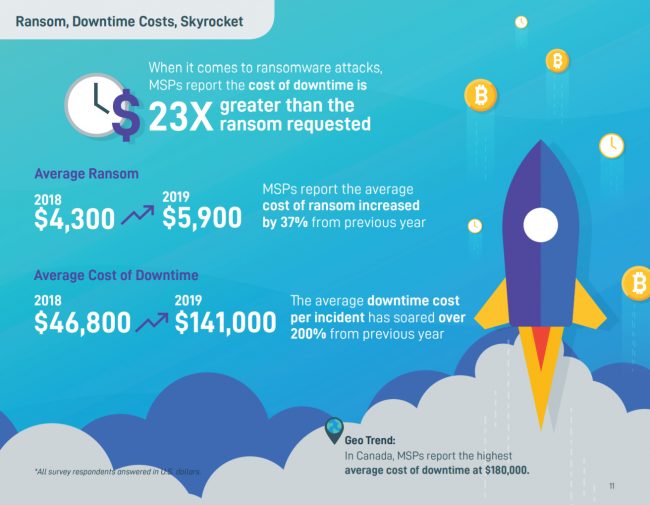What is a good business continuity plan?
Clients sometimes ask “What is a business continuity plan?”
Does it consist of just disaster recovery? Is an onsite local backup or a web based cloud backup enough? What about my mobile devices?
The answer begins with your business needs. Does your business have a business continuity plan? How about a disaster recovery plan?
Can your business afford to be down an hour? 4 hours? A whole day? What percentage of your employees will be affected if your business were to go down?
Can they continue to work? Should they be able to continue to work? Our partner Datto has created this useful calculator so you can answer some of these questions now.
https://www.datto.com/rto/marketnow/
Disaster planning must encompass disasters of all types and sizes: fires, floods, fraud, ransomware, cyber-attacks, power or IT system failure, human error, acts of terror, and other unthinkable scenarios.
While the type of disaster varies, the impact is typical: data and operational downtime. The devastating effect of downtime caused by disaster include irreparable damage to data, reputation, customer relationships, income, and business vitality.
Outdated Practices
There is a common misconception that data is safe if backed up once a day
-
If you forget to perform the backup or the backup process fails, you’re not protected.
-
Backing up your files once a day, you’re left vulnerable to the loss of an entire day’s work.
-
If you don’t properly validate your backup files, you could be in for an unpleasant surprise when you actually try to use those files to restore your company’s operations.
-
Backing up your files on-site, you risk losing them too—leaving you with no way to restore production.
-
If you only back up your raw data, rather than all your application and server configuration files, it could take several days to restore your business — because you will also have to rebuild your servers, operating systems, applications, etc.
Using a local backup for business continuity works well for immediate restores. Your data is there locally making it fast and easy to restore your data should the need arise. However, what happens if the device fails or is destroyed in a natural or man-made disaster? You might think that a cloud based solution might be better when considering those reasons. The downside is that you’re subject to bandwidth, restores tend to be difficult and time consuming and above all else, cloud can fail too.
Whether a business is faced with a natural disaster or one man-made, a strong solution will have you up and running in minutes.
Solutions that leverage the hybrid cloud can guarantee a quicker restore time as well. Why? Local backups are great to keep data stored on local devices, but if something happens to that device, then what?
A hybrid cloud backup solution takes an initial backup on a local device and then replicates the backup to a cloud server. Cloud-only solutions are not as reliable on their own due to bandwidth issues. A hybrid model works to alleviate the vulnerabilities by implementing both processes to fill in the gaps. That’s intelligent business continuity.
If you’d like more information or would like a free consultation, please fill out the form below.


